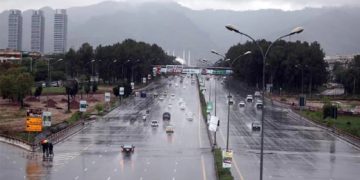International relations, more often than not, are shaped by the pursuit of national interests rather than cultural or religious bonds. Recent developments in the relationship between Pakistan and Afghanistan highlight this reality, as both countries make significant decisions that have far-reaching consequences. These decisions underscore the complex dynamics that govern international relations.
Pakistan’s decision to repatriate millions of Afghan refugees is one of the latest developments in the evolving Pak-Afghan relationship. The Federal Board of Revenue’s amendment to the Customs Rules, imposing stricter regulations on goods headed to Afghanistan through Pakistan, reflects the changing landscape of this bilateral engagement. Financial security requirements for these goods, including guarantees from authorized banks, signal Pakistan’s intention to streamline its trade relationship with Afghanistan.
It’s important to note that Pakistan has hosted a significant number of Afghan refugees for decades and has been Afghanistan’s largest trading partner. This partnership, valued at $1.4 billion in 2018, underscores the economic interdependence between the two countries. Pakistan has also accommodated millions of Afghan nationals within its borders, reflecting a historical commitment to Afghan refugees.
However, the broader context of regional peace and stability adds complexity to the relationship. Pakistan’s cooperation with the United States in its war against terrorism, particularly during General Musharraf’s era, strained relations with Afghanistan. This period saw the rise of various terrorist organizations, including the TTP, Daesh, and BLA, which have posed persistent threats to Pakistan.
Recent decisions by Pakistan to repatriate illegal Afghan residents have raised concerns, especially from the United Nations. While Pakistan is well within its rights to regulate its borders, it must also consider the precarious situation in Afghanistan. The UN rightly highlights the potential for human rights violations and violence upon the return of Afghans to their homeland. The security situation in Afghanistan remains unstable, particularly for vulnerable groups such as women.
On the other hand, Pakistan faces significant security challenges posed by some Afghan citizens. Suicide attacks, with a notable involvement of Afghan nationals, have become a recurrent issue. This situation has led to the difficult task of differentiating between ordinary Afghan citizens and potential threats, compelling Pakistan to deport illegal Afghan residents. This decision is undoubtedly painful but is seen as a necessary step to maintain law and order.
In this intricate web of national interests and humanitarian concerns, it is imperative for Pakistan to strike a balance. While safeguarding its security interests, Pakistan should also demonstrate compassion towards Afghan refugees and vulnerable populations returning to Afghanistan. International assistance, especially from the United Nations, can play a pivotal role in addressing these complex challenges.
It is crucial for the international community to recognize that the situation in Afghanistan is far from stable, and returning Afghan citizens may face severe risks. The Western countries’ continued criticism of the Taliban’s actions highlights the broader global concern for Afghanistan’s future.
In conclusion, Pak-Afghan relations are at a crossroads, where national interests and humanitarian concerns intersect. Pakistan’s decisions regarding Afghan refugees and border regulations must be made with careful consideration of the volatile situation in Afghanistan. Striking the right balance will not only benefit Pakistan but also contribute to regional stability and the welfare of Afghan citizens caught in the crossfire.



























